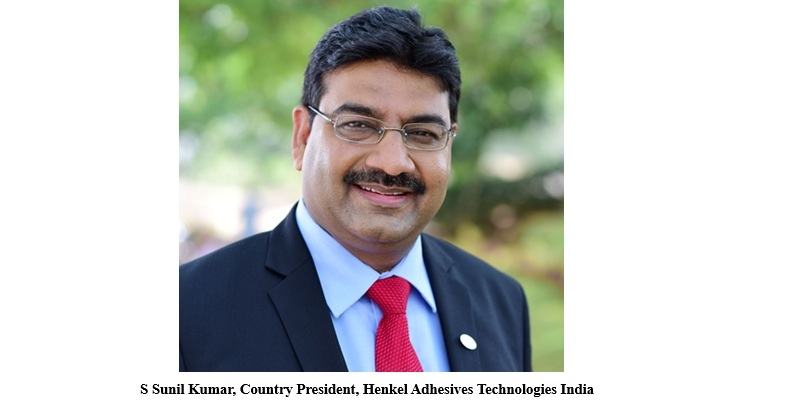Schedule a Call Back
Compliance challenges: Probable solutions for MSMEs
 Articles
Articles- May 27,24

It is reasonable to predict that the Indian economy will soon surpass Germany and Japan to become the third largest within the decade. However, GDP of the $10 trillion mark within this time frame needs reimagining the country’s manufacturing capabilities, particularly in the MSME segment. There is a broad consensus that MSMEs are an engine of economic growth. They account for approximately 30% of the GDP, 36% of the manufacturing output and over 40% of the country’s exports. There are over 63 million MSMEs in India, employing more than 190 million people. However, a staggering 98% of these are micro-businesses. A deeper dive into the data reveals that MSMEs bear a disproportionately high regulatory burden stunting their growth and forcing them to stay small and informal.
Complexity of regulatory obligations
It is observed that as a business transitions from an informal one to formal, there is a sudden and steep rise in its regulatory obligations and cost of compliance. The current system unleashes a large number of compliances across seven broad categories of the law including Labour, Finance & Tax, Environment Health and Safety, Commercial, Secretarial, Industry Specific and General. The compliances include a variety of licences, registrations, permissions, consent orders, periodic returns, registers, challans, displays, payments among others. Many of them require interpretation of complex laws, deep knowledge of compliances, physical visit to the department, dealing with inspections among others.
For instance, an MSME pharmaceutical manufacturer deals with 998 unique compliances in a year. Approximately 50% of them carry clauses of imprisonment ranging between a few months to 10 years for contraventions. Similarly, a chemical manufacturer operating in a single state must deal with an average of 635 unique compliances. An automotive component manufacturer operating out of a single state deals with 489 compliances. Breaking down these compliances on the basis of their nature, type, and category can further unravel the inherent complexity of the regulatory framework.
Within the pharmaceutical industry framework, compliances stemming from central acts and rules make up the majority (57.5%) of the obligations. Among the 998 compliances, more than 200 regulations are around the maintenance of registers and records. Returns, filings, disclosures and display requirements add up to another 100+ obligations. The employer must further obtain and maintain 47 licenses, registrations, certificates, approvals, etc., to stay on the right side of the law. Categorising these compliances among the 7 broad categories, we gain a deeper insight into the regulatory cholesterol present within the ecosystem. Labour compliances alone account for 45% of the regulatory requirement. The manufactory must also abide by 287 industry-specific regulations. Manufacturing units are central to the business operations of SMEs and require the most time and effort to ensure compliance.
Understanding the burden
The Factories Act, 1948 and its subordinate state rules constitute the major part of the regulatory framework for these factories. Going back to the state of affairs within the pharmaceutical industry, they account for 164 of the 412 compliance requirements. These obligations include the maintenance of workers and wage registers, inspection books, and records of whitewashing/colour washing/varnishing, among others, is essential for regulatory compliance and accountability. Additionally, ensuring a steady supply of cool drinking water and whitewashing latrines and urinals every four months are critical measures for maintaining hygiene standards. Regular examinations of pressure plants, vessels, belts, hoists, and lifts are conducted to prevent accidents and ensure workplace safety. Annual checks on noise levels help mitigate potential hearing damage among workers. Health check-ups and record-keeping for employees handling hazardous substances are crucial for their well-being. Lime washing the internal walls of the canteen and restricting working hours contribute to a healthy and comfortable work environment. Proper treatment of wastes and effluents from manufacturing processes is necessary to minimize environmental impact. Regular cleaning of factory floors, canteens, latrines, and urinals maintains cleanliness and hygiene standards. Finally, conducting regular safety audits ensures that all safety protocols are followed and any potential hazards are identified and addressed promptly.
Factory owners must prioritise environmental protection and worker safety by placing fire extinguishers visibly, conducting regular maintenance, and maintaining records.
They must also adhere to emission norms, properly manage waste disposal, and conduct environmental audits. Additionally, mandatory fire safety measures, including certifications, are required to prevent fire and explosion hazards within factory premises, consistently across industries and sectors.
Critical areas
Enterprises with just a single manufacturing unit face about 50 display requirements. These include displaying registrations, abstracts of legislations, standing orders, employee-related social security rules, safety signboards, labels on hazardous substances, and identification marks on equipment, among others. Employers are also required to maintain wage registers, muster rolls, leave and attendance registers, temperature registers, and records of waste disposal, among at least 40 other unique registers in various formats. SMEs must also wade through the swamp of the 21st-century licence raj. On average, enterprises have to obtain at least 30 different licenses, registrations and approvals from various authorities. These include EPF and ESI registrations, land registrations, trade licences, environment clearances, factory licences, permanent power, water and sewerage connections from municipal corporations, and vehicle registrations, among others.
Furthermore, over half of the business regulatory laws carry imprisonment clauses, with 2 out of 5 compliances imposing jail terms for violations. This high intensity of criminalisation stems from the blanket application of criminal penalties without adherence to principles of ‘necessity’ and ‘proportionality’. Failure to provide adequate drinking water facilities in a factory under the Factories Act, 1948 can attract a punishment equivalent to death due to negligence under the Indian Penal Code, 1860. ‘The Jan Vishwas’ (Amendment of Provisions) Act, 2023 was another momentous milestone in the journey of decriminalisation. However, the business regulatory framework is still fraught with imprisonment provisions that continue to worry employers.
SMEs grapple with multifaceted regulatory challenges spanning various categories, types, and levels, compounded by a constantly evolving regulatory landscape with over 8,300 updates annually across 2,000 websites. Navigating compliance is further complicated by the absence of tailored regulation lists, with sectors like chemicals, automotive, and pharmaceuticals facing unique obligations. Moreover, SMEs often lack the capacity to manage licenses and approvals efficiently, relying on manual processes that hinder compliance. Cultivating a culture of compliance within senior management is vital for instilling accountability and collective responsibility among employees. Another complexity that affects the capabilities of SMEs in addressing their compliance needs is scale. While they have lower compliance requirements because of the smaller scale and size of operations, they are not able to afford large teams to handle their compliance needs. As such, they end up outsourcing their compliance operations to labour consultants, direct and indirect tax consultants, EHS consultants, and practising Company Secretaries. These consultants continue to rely on manual, people-dependent, paper-based processes, with the majority of the work being done on an ad-hoc basis. Furthermore, these consultants also possess a large amount of sensitive personal information related to employees and customer data. Without a robust data protection protocol in place, this data becomes vulnerable and an easy target for threat actors.
The recently introduced Digital Personal Data Protection Act, 2023 addresses this regulatory arbitrage around data protection. It lays down the obligations and responsibilities of entities that collect, store, and process large amounts of personal data. Once the regulations and rules under the act are introduced, these consultants and SMEs, by extension, will be required to adhere to the stricter data protection framework.
Building a compliant culture
In such a complex regulatory environment, the onus lies on SMEs to strengthen their compliance management. Going digital is perhaps the most critical step towards safeguarding against lapses, delays and defaults. Digitalisation gives employers better visibility and increased control over compliance functions. Compliance technology has replaced traditional manual compliance processes with unique features, including customised checklists, real-time regulatory updates, automated alerts and reminders, and periodic analytics. SMEs can now track and manage their compliance requirements and any changes brought about by regulatory updates. These solutions are helping enterprises to shift from ad-hoc, manual, paper-based, and people-dependent compliance to paperless, presence-less, and cashless compliance processes. Technology is reducing the cost of compliance for enterprises and the instances of poor compliance, consequently reducing their exposure to fines and penalties.
There needs to be a concerted effort to establish collective responsibility by decentralising compliance tasks. By 2047, India will be the home of every 1 in 5 working-age individuals worldwide. We are in our ‘Amrit Kaal’, and marching towards becoming the ‘Factory to the World’ and a $40 billion economy.
About the author -
Rishi Agarwal is the Co-founder and CEO of TeamLease RegTech, leading India’s Regulatory Technology (RegTech) landscape, revolutionising compliance management for over 1500 companies. He champions tech-driven solutions, envisioning a reimagined regulatory environment for India, where compliance becomes seamless and effortless. Prior to his entrepreneurial journey, Rishi spearheaded technology initiatives at The Bank of New York Mellon, with over five years of experience in global technology leadership roles.
Related Stories

NBC Bearings and Ahamani EV Technology form JV for advanced drones in India
NBC Bearings partners Ahamani India to scale advanced drone solutions, strengthening Make in India and localisation efforts.
Read more
India–EU FTA sealed, offers preferential EU access to over 99% of Indian exports
The agreement is expected to be particularly transformative for labour-intensive sectors and MSMEs, with positive spillovers for employment generation among women, artisans, youth and professionals.
Read more
Indian manufacturing sector: Negotiating its way in a less VUCA world
India’s manufacturing sector is evolving through policy support, technology adoption and sectoral growth, though challenges in R&D and skilling remain, writes Prof R Jayaraman, Head, Capstone Proj..
Read more













